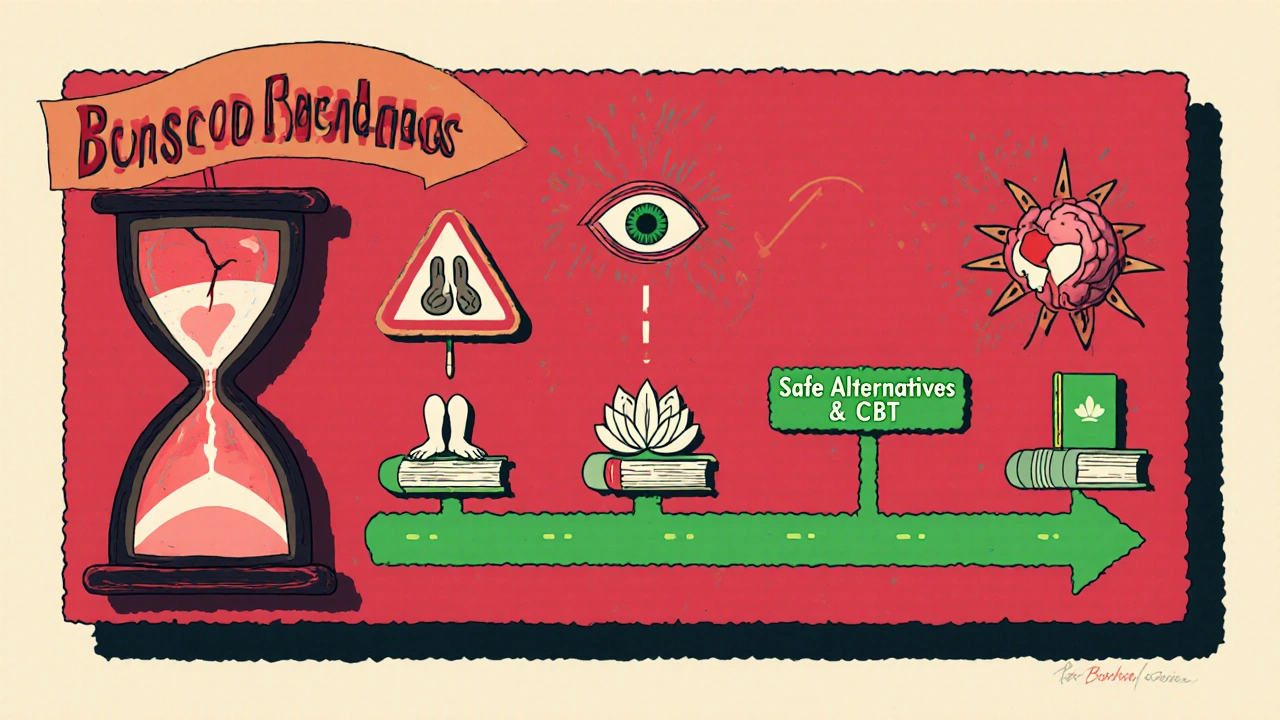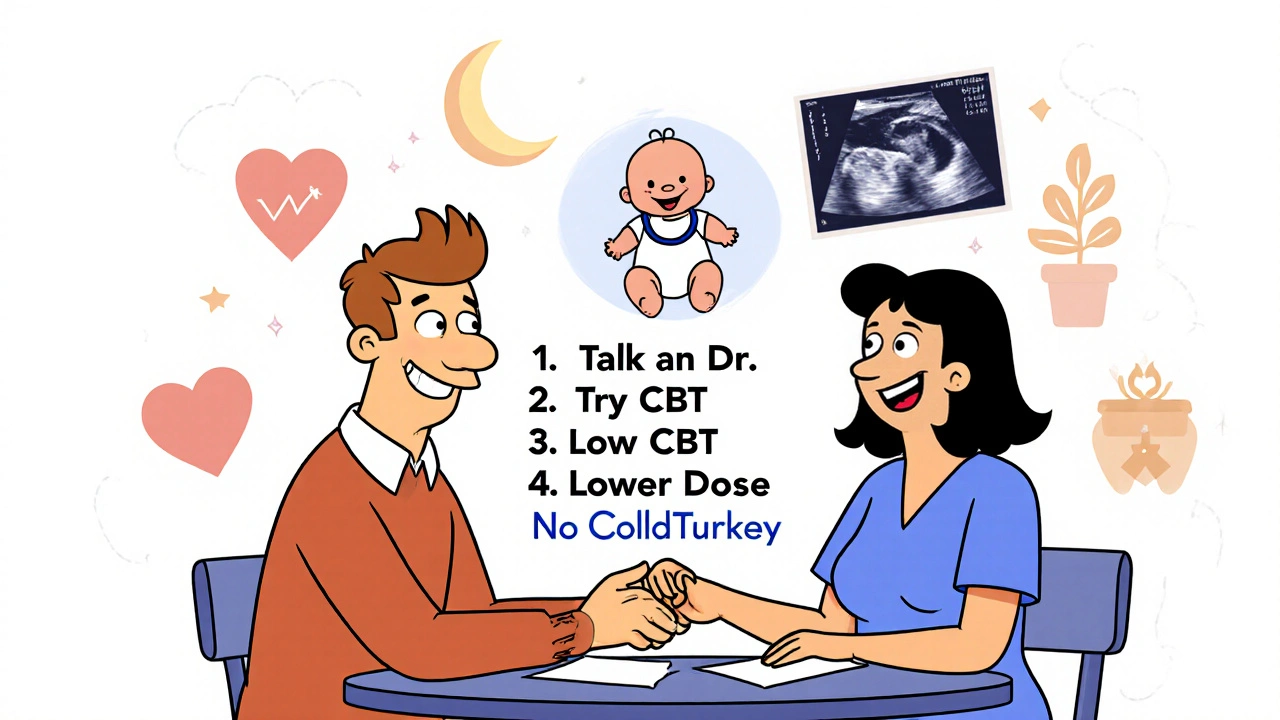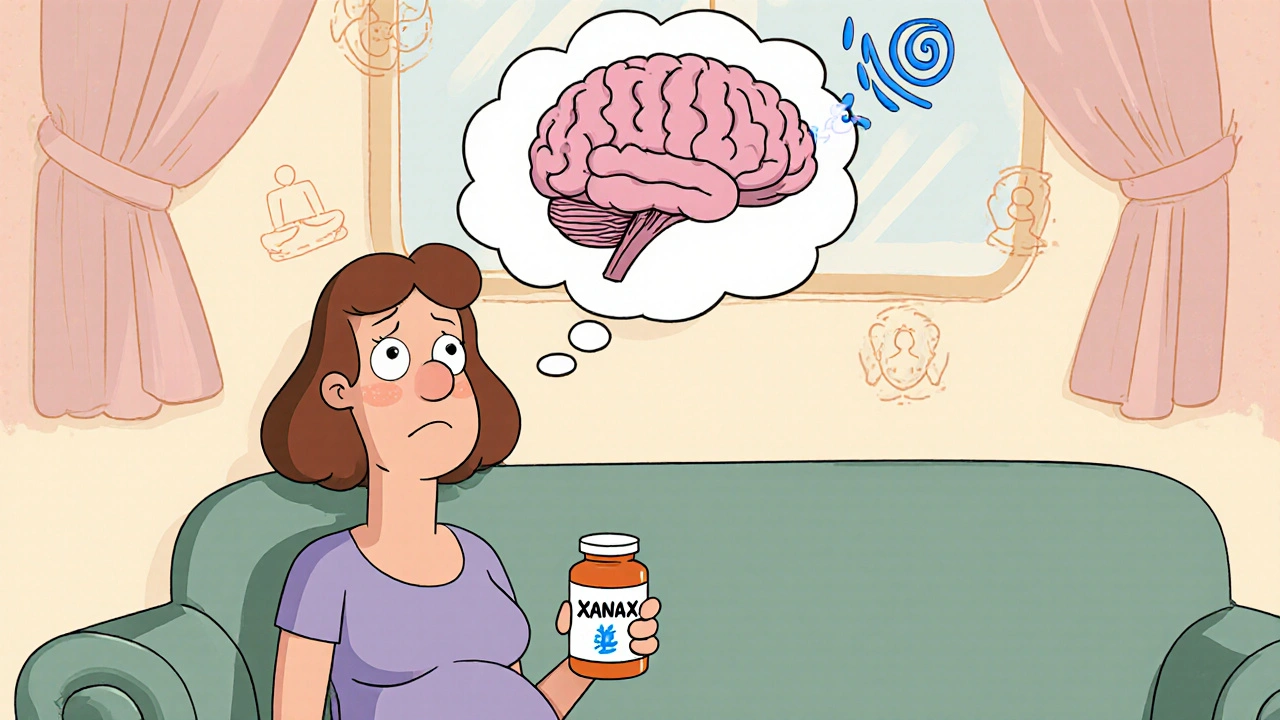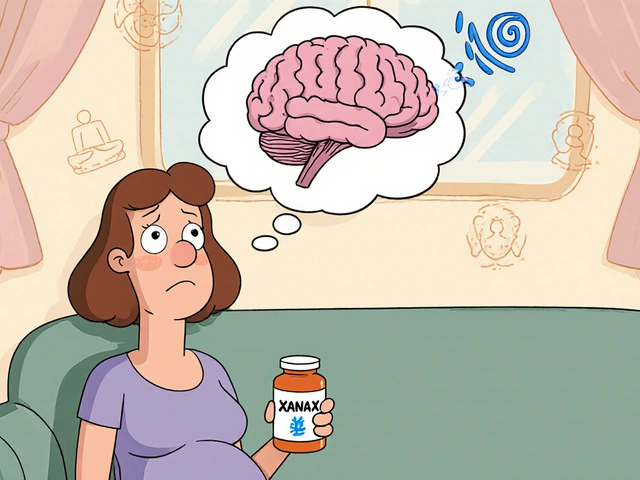When you're pregnant and struggling with anxiety or insomnia, it’s hard to know what’s safe. You might be told benzodiazepines are okay for a short time-but what does the science really say? The truth isn’t simple. Some studies show a small but real increase in birth defects. Others say the risk is too low to worry about. But here’s what matters: if you’re taking or thinking about taking a benzodiazepine while pregnant, you need to understand the facts-not the noise.
What Are Benzodiazepines, and Why Are They Used in Pregnancy?
Benzodiazepines are a class of drugs that calm the nervous system. Common ones include alprazolam (Xanax), lorazepam (Ativan), and diazepam (Valium). They’re prescribed for severe anxiety, panic attacks, and sometimes insomnia. About 1.7% of pregnant women in the U.S. get a prescription during the first trimester, according to a 2024 JAMA Psychiatry study. That number has been rising over the last decade.
Doctors don’t prescribe them lightly. For some women, untreated anxiety or panic can be just as dangerous as the medication. Severe stress raises cortisol levels, which can affect fetal development. But the question isn’t whether anxiety is bad-it’s whether benzodiazepines are the safest way to manage it.
The Evidence on Birth Defects: What the Studies Show
Large studies have found mixed results, but the strongest data points to a small increase in certain risks. A 2022 study in PLOS Medicine tracked 3.1 million pregnancies in South Korea. It found that women who took benzodiazepines in the first trimester had an 8% higher risk of overall birth defects and a 14% higher risk of heart defects. That doesn’t mean most babies will be affected. It means for every 1,000 women taking these drugs, about 8 more babies might have a major birth defect compared to those who didn’t.
Some defects showed stronger links. The CDC’s National Birth Defects Prevention Study found:
- Alprazolam was linked to a 4 times higher risk of anophthalmia or microphthalmia (missing or underdeveloped eyes)
- Alprazolam also doubled the risk of esophageal atresia (a birth defect where the esophagus doesn’t connect properly)
- Lorazepam was tied to a 4 times higher risk of pulmonary valve stenosis (a heart valve narrowing)
- Dandy-Walker malformation (a rare brain defect) showed a 3 times higher risk
These are rare conditions. But when a drug is linked to something this specific, it’s not random. The pattern suggests a biological effect, not just coincidence.
Dose Matters-More Is Riskier
Not all exposure is the same. The PLOS Medicine study found a clear dose-response pattern. Women taking more than 2.5 mg per day of lorazepam-equivalent had higher risks. That’s about one 1 mg tablet of lorazepam or two 0.5 mg tablets of alprazolam daily. If you’re on a low dose-say, half a tablet of alprazolam every other day-the risk is likely much lower. But if you’re on a daily dose of 1 mg or more, the data suggests you should talk to your doctor about alternatives.
Also, timing matters. The first trimester is when organs form. That’s the window of highest vulnerability. Exposure after week 12 carries less risk for structural defects-but still carries other risks like preterm birth or low birth weight.

Other Pregnancy Risks Beyond Birth Defects
Benzodiazepines don’t just affect how a baby’s body forms. They can affect how the baby grows and survives after birth.
- Studies show an 85% higher risk of miscarriage with any benzodiazepine use during pregnancy
- Exposure in the 90 days before conception is linked to higher rates of ectopic pregnancy
- Preterm birth, low birth weight, and low Apgar scores are more common
- Babies exposed in late pregnancy may have withdrawal symptoms after birth-jitteriness, feeding problems, breathing issues
One study found that the absolute risk of a major birth defect was 3.81 per 100 pregnancies with benzodiazepine use, compared to 2.87 per 100 in unexposed pregnancies. That’s a 0.94% increase. It’s small-but it’s real. And when you’re carrying a baby, even a 1% change matters.
What Do Experts Recommend?
Major medical groups agree: avoid benzodiazepines in pregnancy if you can. The American College of Obstetricians and Gynecologists (ACOG) says they should be avoided in the first trimester unless absolutely necessary. The FDA labels them as Category D-meaning there’s clear evidence of fetal risk. The European Medicines Agency and Canadian guidelines echo the same warning.
But they also recognize that some women can’t function without them. For those with severe, treatment-resistant anxiety, the risks of stopping may outweigh the risks of continuing. That’s why guidelines say: use with caution. Not never. Not always. But only if needed, at the lowest dose, for the shortest time.
Alternatives to Benzodiazepines During Pregnancy
There are safer ways to manage anxiety and sleep issues during pregnancy.
- Cognitive Behavioral Therapy (CBT): Proven effective for anxiety and insomnia. No drugs, no risk.
- Mindfulness and meditation: Studies show it reduces cortisol and improves sleep quality.
- Regular exercise: Even 30 minutes of walking daily lowers anxiety symptoms.
- Sleep hygiene: Consistent bedtime, no screens before bed, cool dark room-these help more than people think.
- SSRIs like sertraline: If you need medication, SSRIs have better safety data than benzodiazepines. They’re not risk-free, but they’re better studied and less likely to cause birth defects.
Many women feel guilty for needing help. But asking for support isn’t weakness. It’s the smartest thing you can do for your baby.

What If You’re Already Taking Benzodiazepines?
Don’t stop cold turkey. Sudden withdrawal can trigger seizures, panic attacks, or even harm the baby. Talk to your doctor. Together, you can:
- Assess your current dose and timing
- Switch to a safer alternative if possible
- Gradually reduce the dose under supervision
- Start non-drug therapies like CBT or mindfulness
If you’re taking alprazolam, your doctor may suggest switching to a shorter-acting agent like lorazepam, which clears the system faster. But even that isn’t risk-free. The goal isn’t to find the “least bad” benzodiazepine-it’s to get off them if you can.
What About Breastfeeding?
Benzodiazepines pass into breast milk, but most are in low amounts. Short-acting ones like lorazepam are preferred over long-acting ones like diazepam, which can build up in the baby’s system. If you must take them while breastfeeding, take the lowest dose right after nursing, and watch your baby for drowsiness, poor feeding, or breathing issues. Most experts say occasional low-dose use is acceptable-but it’s not ideal.
Final Thoughts: Balance, Not Fear
This isn’t about scaring you. It’s about giving you real information so you can make a real choice. Most women who take benzodiazepines during pregnancy have healthy babies. But the data shows a small, consistent increase in specific risks-especially with higher doses and alprazolam.
If you’re pregnant or planning to be, talk to your doctor before starting or stopping any medication. Don’t rely on internet advice. Don’t feel ashamed if you need help. And don’t assume that because a drug is legal, it’s safe for your baby.
There’s no perfect answer. But there is a better one: work with your care team. Use non-drug tools first. If you need medicine, choose the one with the best safety profile. And always, always keep the conversation going.



Reema Al-Zaheri
November 19, 2025 AT 09:06Benzodiazepine use during pregnancy remains a clinically nuanced issue, and the data presented here is both methodologically sound and statistically significant.
The PLOS Medicine study’s 8% increase in overall birth defects, coupled with the dose-response relationship, cannot be dismissed as noise.
Moreover, the specificity of the anomalies-microphthalmia, esophageal atresia, pulmonary valve stenosis-suggests a teratogenic mechanism, not random variation.
While the absolute risk remains low, the ethical imperative to minimize preventable harm is non-negotiable.
Physicians must prioritize non-pharmacologic interventions first, particularly CBT, which has Level I evidence for anxiety management in pregnancy.
SSRIs, while not risk-free, have a more robust safety profile than benzodiazepines, especially regarding structural defects.
The FDA’s Category D classification is not arbitrary; it reflects cumulative human data.
Stopping abruptly is dangerous, yes-but continuing without informed consent is equally irresponsible.
Patients deserve transparent, evidence-based counseling, not reassurances masked as comfort.
There is no such thing as a ‘safe’ benzodiazepine in pregnancy-only less dangerous alternatives.
And yes, the rising prescription rates over the last decade are alarming, and reflect systemic overreliance on pharmacological solutions.
This is not fear-mongering. It is clinical responsibility.
Michael Salmon
November 20, 2025 AT 22:26Dion Hetemi
November 21, 2025 AT 00:33Kara Binning
November 22, 2025 AT 23:09river weiss
November 23, 2025 AT 00:04Reema’s comment above is exactly right: this is not about fear-it’s about informed consent.
Let me add one more layer: the 2024 JAMA Psychiatry study found that 1.7% of pregnant women receive benzodiazepines-but 78% of those prescriptions were written by non-obstetric providers, often in primary care settings with no prenatal consultation.
That’s the real problem: fragmentation of care.
OB-GYNs are trained to recognize teratogenic risks; ER doctors and PCPs are not always.
We need better communication between prescribers and prenatal teams.
Also: CBT is underfunded, under-accessed, and often delayed by months due to insurance barriers.
So yes, the medication risk is real-but so is the systemic failure to provide alternatives.
Fix the system, not just the script.
Ellen Calnan
November 23, 2025 AT 18:47Richard Risemberg
November 24, 2025 AT 18:24Andrew Montandon
November 24, 2025 AT 21:06Sam Reicks
November 25, 2025 AT 15:35Chuck Coffer
November 27, 2025 AT 03:19Marjorie Antoniou
November 27, 2025 AT 09:26Andrew Baggley
November 28, 2025 AT 01:37